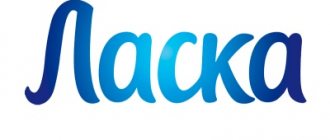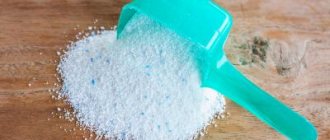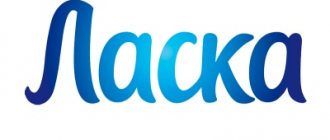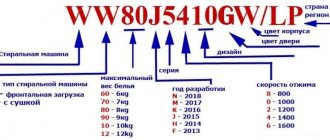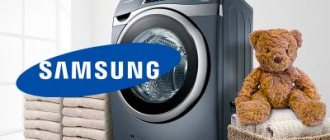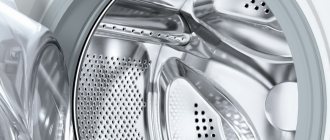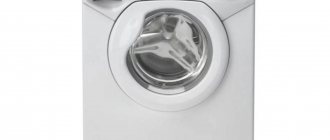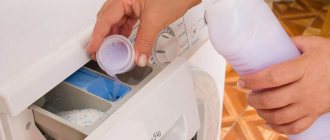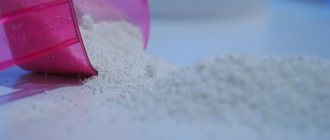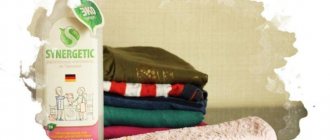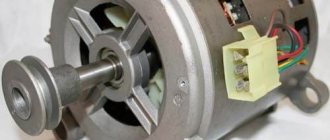Choosing a detergent is a responsible task for every housewife, especially if there are children in the family.
The powder should not only remove stains well, but also maintain the quality of the item and be safe for health.
Japanese washing powders fully meet these and other criteria. However, it also has some disadvantages.
Therefore, the best choice is those products from Japan that have numerous positive reviews.
Advantages and disadvantages
The standard phrase on the packaging “Made in Japan” indicates the high quality of the product . This country has very stringent requirements for products that can affect human health and the environment. Washing powders are no exception.
Japanese-made granular detergents have proven themselves exclusively on the positive side.
Their advantages include:
High efficiency in removing contamination.- Versatile use when washing.
- Excellent preservation of fabric color and structure.
- Fast and high-quality rinsing.
- Safety for human health.
- Rapid biodegradability in natural conditions.
- Economical consumption if the dosage is observed.
The excellent washability of dirt, stains and yellowness is explained by the thoughtful formula, which was developed by Japanese technologists and chemists.
The activity of the powders is explained by the presence of:
- enzymes,
- nonionic surfactants (NSAS) of plant origin,
- citric acid salts,
- mineral supplements.
Japanese powders can be used for:
- manual and automated washing,
- soaking,
- discoloration of spots,
- refreshing laundry.
The products are effective at any temperature, so washing with them is possible even in cool water . Universality also manifests itself in relation to things. Powders from Japan are used for clothing for adults and children, colored and white, cotton and synthetics.
To find out whether the selected Japanese powder is suitable for children's underwear, you must carefully read the instructions on the package.
Japanese powders do not contain harsh chemicals. Therefore, during washing there is no discoloration of fabric pigments and destruction of the fiber structure. With the constant use of such products, things retain their rich color and shape for a long time.
Since there is a shortage of fresh water in Japan, all produced detergents are required to be effectively rinsed with minimal consumption of water resources. Powder products fully satisfy this condition.
Safety for humans and the environment is due to the absence of:
- chlorine,
- phosphates,
- phosphonates.
Many brands do not contain surfactants or zeolites. It has been proven that these compounds negatively affect human health and the state of natural ecosystems. In Japan, the use of some of the listed substances (in particular, phosphates) is prohibited by law.
All Japanese granular laundry detergents are highly concentrated. This explains their economical consumption.
With such an impressive list of advantages, Asian powders still have a drawback. Compared to their European counterparts, they are considered more expensive . But the high price is partially offset by efficiency, effectiveness and safety.
Packaging Features
Attack features unconventional, modern packaging. Manufacturers gave preference to practicality - the volume is 0.9 kg and 1 kg. The package includes a convenient measuring spoon with which you can take the required amount of powder. Feature: when purchasing detergent repeatedly, there is no need to purchase a full package; just buy a replacement unit and insert it into an existing box.
This solution allows:
- Save time and effort while doing housework;
- Take care of your health - powder particles cannot be inhaled, so they will not enter the respiratory tract;
- The box can be sealed after opening - this protects the product from moisture penetration and spillage.
TOP 5 best, reviews, price
The phrase “Japanese powders” means a whole line of detergents of different brands. Products from different manufacturers differ in characteristics, price, and application. The rating shows that well-known brands are the most popular.
Attack Bio EX
The universal concentrated powder contains enzymes and optical brightener . The last component has luminescent properties, so it makes colored fabrics visually brighter, and white fabrics more snow-white.
Designed for white and colored products. Suitable for washing items made of cotton, synthetics, linen at a temperature of 30-40 degrees. Not suitable for silk and wool.
The granules are saturated with air, due to which they quickly dissolve in water. The product has a light floral aroma.
The package (1 kg) is designed for 29 standard washes. The average cost is 580 rubles. Reviews prove the good effectiveness of Attack Bio EX - 78% of consumers recommend it for use.
Likes more than anything:
- efficiency,
- hypoallergenic,
- unobtrusive smell,
- excellent rinsability.
Using granules eliminates the need for air conditioning. The disadvantage is the high price. Some people have doubts about the presence of surfactants in the composition.
Lion Shoushu Blue Dia
The composition of the granular product consists of 75% plant ingredients that completely decompose in the environment. The packaging is made from recycled pulp. The powder contains enzymes and oxygen bleach.
Purpose of the powder:
- cleaning colored and white cotton laundry,
- flax,
- synthetics,
- mixed fabrics.
Not recommended for use on wool and silk items. The powder has a soft mint aroma that effectively refreshes the fabric. A 900 g package has a price tag of 470 rubles.
The majority of users (94%) who have tested Lion Shoushu Blue Dia in practice recommend it for use. The advantages include:
- ease of use due to the presence of a measuring spoon,
- cleaning efficiency,
- pleasant aroma,
- efficiency.
Occasionally, a high price and poor removal of old stains are noted. Read reviews here.
Miyoshi
The powder is made on the basis of:
- natural plant ingredients,
- potassium salt,
- fatty acids,
- silicates.
Suitable for white and colored items made of cotton, linen, and synthetics. Has a pleasant floral aroma. Requires prior dissolution in water.
A large package of 2.16 kg costs about 1,500 rubles without promotions.
There are positive and negative reviews about this powder. Noted:
- good washability of things,
- hypoallergenic,
- economical consumption.
However, there are comments about the stale smell after washing, as well as the inconvenience of use - when pouring into the powder receptacle, an insoluble lump may form.
Daiichi FUNS
Granular detergent is suitable for washing all types of fabrics . Excellent color retention. The composition includes bleach, enzymes, conditioner. The powder does not require high consumption if you follow the recommendations for loading the machine.
A box weighing 900 g sells for an average of 400 rubles.
There are extremely positive reviews about the Daiichi FUNS brand. Consumers note decent cleansing of contaminants and confirm the cost-effectiveness. After washing, things retain their softness and unobtrusive fruity aroma.
Mitsuei Super Wash
Powder detergent is ideal for washing:
- white or light-colored cotton items,
- flax,
- synthetics,
- combined fabrics.
The formula contains a water softener and enzymes that have super-strong whitening properties. Not recommended for use on lightly colored products. The optimal water temperature for soaking and washing is 30 degrees.
A package (1 kg) sells for an average of 420 rubles.
Users who have tested Mitsuei Super Wash note a pleasant aroma and satisfactory washing results. The disadvantages include the lack of a measuring spoon and the weak return of whiteness to grayed items . Read reviews here.
conclusions
Let's summarize:
- Today, gels are actively replacing washing powders. Liquid products are more convenient and safer. The range of Japanese manufacturers includes both granular and gel detergents, as well as fabric softeners.
- Japanese brands rely on the environmental friendliness and harmlessness of their products. The consumer’s task is to buy an original product, not a cheap counterfeit.
- Japanese SMS are expensive. You have to pay extra for harmlessness combined with high efficiency. Despite the absence of phosphates, the products have a powerful cleansing effect.
- There are several dozen powder and gel laundry detergents on the market. The ranking of the best SMS includes brands TTACK BIO EX, LION BLUE DIAMOND, SHABONDAMA SNOUL and others.
The Japanese know how to make not only super equipment, but also excellent household chemicals. Fans of everything natural, they create washing powders based on components taken from nature. Japanese products have only one drawback - high cost.
Which detergent to choose for washing children's clothes and newborn clothes?
Many Japanese powders can be used for washing both adults and children's clothes. At the same time, some manufacturers produce special “Baby” series.
The most famous are:
- NS FaFa Japan Baby . Designed for colored cotton and synthetic linen. Contains bleach, enzymes, conditioner. The aroma depends on the series. A package weighing 900 g costs an average of 310 rubles.
- Shabondama Snowle . Suitable for colored items made of cotton, synthetics, silk, wool. You can wash both adult and children's clothes. Has no fragrance. The price without discounts is approximately 950 rubles.
- Belive Japanese style (children's) . Effective against stains of various origins on cotton. Used for soaking and washing. You can pour it directly into the drum. Does not contain fragrances. Price per package (1.2 kg) – 470 rubles.
The choice of baby powder must be approached with special care. Before purchasing, you should make sure that the composition does not contain unacceptable components:
- phosphates,
- APAV,
- flavorings,
- chlorine.
The packaging of a Japanese product must have instructions in Russian, which fully disclose the composition, method of use, expiration date and special recommendations.
Security Recommendations
Regardless of whether the washing powder for white or colored clothes was chosen, at an affordable price or expensive, from a domestic or foreign manufacturer, it is necessary to strictly follow safety rules when using it. They are as follows:
- To prevent aggressive components from getting on the skin of your hands, you need to use rubber gloves.
- When pouring granules, you must be careful, do not rush and do not lift the bag high so that the dust does not spread throughout the room.
- If an allergic reaction occurs to a product, you must urgently replace it with another, higher quality, natural and hypoallergenic one.
- Do not install the washing machine in the kitchen or in close proximity to food storage and preparation. The fumes emanating from the gel or powder can settle on food and kitchen utensils, which will inevitably lead to a deterioration in health.
- Do not store open packaging. It must be hermetically sealed and placed in a tight plastic bag.
- You should adhere to the dosage recommended by the manufacturer. The average is no more than 5 grams of powder per 1 liter of water. Excessive spending will lead to reckless spending. Particles may remain on laundry and cause allergies.
Where to buy?
Laundry products made in Japan are distributed through offline and online retail outlets. The product can be found in supermarkets, hardware stores and markets, and online stores. The advantage of the latter is saving time when choosing a product, as well as a lower price.
In addition, a wide range of products is presented in small stores specializing in Japanese products . Consultants of such mini-markets are always ready to answer all your questions about the product.
Japanese powders are an excellent laundry detergent. But if you decide to give preference to Asian products, you should remember some rules for their selection.
Powders from different manufacturers differ not only in price, but also in quality and level of effectiveness. Therefore, before purchasing, it is recommended to analyze the information and read reviews.
When choosing, you should pay attention:
- brand,
- powder composition,
- purpose (for adults and/or children),
- dosage,
- expiration date.
Rules for the use of Japanese powders
The peculiarity of Japanese laundry detergents is their concentrated composition. Therefore, the only difference in the way they are used, in comparison with products from other manufacturers, is the need to use less quantity per wash. Consumption rates are always indicated on the packaging, usually in the form of a table.
Even if all the labels on the packaging are in Japanese, it’s easy to understand how to use the powder: a convenient table clearly shows this
The recommended water temperature for washing is 30–40 degrees.
Some Japanese powders contain a softener, so when using them, this product does not need to be added.
Additional Tips
The use of any Japanese powder is determined by general rules. To ensure a satisfying washing result, you need to remember the following tips:
- Because of their high concentration, Japanese powders cannot be poured directly onto clothes. This may cause the area of the fabric to become discolored.
- When washing by hand, the granules are first dissolved in water, and only then are the items placed in a soapy solution.
- To remove stains, the powder is diluted to a paste and applied to the contaminated area before the main wash.

